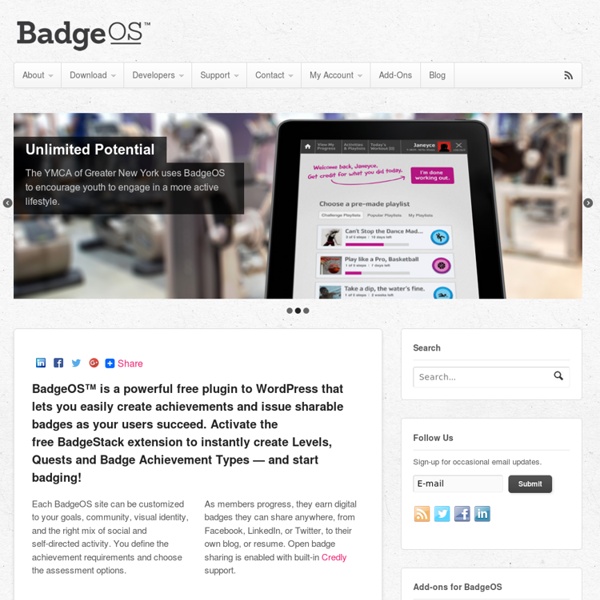Conspiracy Theories in Aerospace History
You can’t believe everything you read on the Internet. How do you evaluate the reliability of online information? Check out the conference archives from this National Air and Space Museum interactive online conference developed especially for teachers and secondary students. Access Recordings Related Resources During the event, thousands of teachers and students from around the world asked questions and shared their questions and opinions.
The IB Career-related Certificate (IBCC)
Life in the 21st Century places many demands on students. Enabling students to become self-confident, internationally minded learners must be integral to their education. The International Baccalaureate (IB) has developed a framework of international education incorporating the vision and educational principles of the IB into local programmes to address the needs of students engaged in career-related studies. *This video will shortly be available in French and Spanish The IB Career-related Certificate (IBCC) increases access to an IB education and is specifically designed to provide a flexible learning framework that can be tailored by the school to meet the needs of students. What is the IB Career-related Certificate (IBCC)? The IBCC’s flexibility allows schools to meet the needs, backgrounds and contexts of students with each school creating its own distinct version of the IBCC. The IBCC framework is built around three interconnected elements: The IBCC enables students to:
Everything You Ever Wanted to Know About Badging in the Classroom--Our Definitive Guide -- THE Journal
Career/College Readiness | May 2013 Digital Edition Everything You Ever Wanted to Know About Badging in the Classroom--Our Definitive Guide With new programs and standards emerging, digital badges are helping students prove what they've learned in--and outside--school. By John K. March was a big month in the world of digital badging. These developments signal the fast approach of a tipping point for digital badging in K-12 education. Grant works for the Humanities, Arts, Science, and Technology Advanced Collaboratory, better known as HASTAC (pronounced "haystack"), which administered the most recent MacArthur competition, the fourth such contest and the first to focus on digital badges. Why are all these organizations using their considerable weight to promote the development of digital badges? That idea seems central to the support digital badges are receiving from the Obama administration.
Educational Videos and Games for Kids about Science, Math, Social Studies and English
Grad Engineering Programs Probe Intersection of Science, Art
When engineers seek solutions to a problem—such as how to build a bridge to traverse a river—they tend to draw upon designs that have worked in the past. It takes an artist to provide a "more creative approach," says Christie Lin, a graduate engineering student at Massachusetts Institute of Technology. By collaborating, engineers and artists can push the limits of what is already known about their respective fields, explains Lin, who studies nuclear engineering at MIT, where she is also part of the Art Scholars group. Margaret Duff, a doctoral student at Arizona State University's Fulton School of Engineering, agrees with Lin. Both Lin's and Duff's schools are part of what some are calling a new movement in engineering schools toward the interdisciplinary study of science and art. "No one wants to live in a world of ugly buildings and clunky gadgets," says Evan Ziporyn, the director of the new MIT center and a music professor. [Learn about design M.B.A.' [Check out the U.S.
Lifescouts
The Clarifying Routine: Elaborating Vocabulary Instruction
By: Edwin S. Ellis When you think of vocabulary, there is a good chance that you think of long lists of words from social studies or science textbooks, spelling word lists, or even the humongous lists of terms to study for college entrance exams. Zillions of flash cards also may come to mind. No doubt you share the common childhood experience of having to "go look up the words in a dictionary, write the definition, and then write a sentence using the term" — but how much of that vocabulary do you remember now? Perhaps the least effective way to study vocabulary is the "look and remember" technique. Ross Perot, with his unique use of the English language, said it best — "That dog don't hunt!" We know from research that new terms must be defined using language and examples which are already familiar to students, and that the more ideas from background knowledge with which the student can associate the new term, the more likely it will become a well-networked and permanent part of memory.
How Creativity Works': It's All In Your Imagination
iStockphoto.com What makes people creative? What gives some of us the ability to create work that captivates the eyes, minds and hearts of others? Jonah Lehrer, a writer specializing in neuroscience, addresses that question in his new book, Imagine: How Creativity Works. Lehrer defines creativity broadly, considering everything from the invention of masking tape to breakthroughs in mathematics; from memorable ad campaigns to Shakespearean tragedies. Lehrer joins NPR's Robert Siegel to talk about the creative process — where great ideas come from, how to foster them, and what to do when you inevitably get stuck. Interview Highlights On comparing Shakespeare with the inventor of masking tape "I think we absolutely can lump them all together. "... On how Steve Jobs redesigned Pixar studios to maximize collaboration and creativity On forcing people to meet and mingle ... even if it's in the bathroom " ... Nina Subin/Courtesy Houghton Mifflin Harcourt "It's near midnight.



